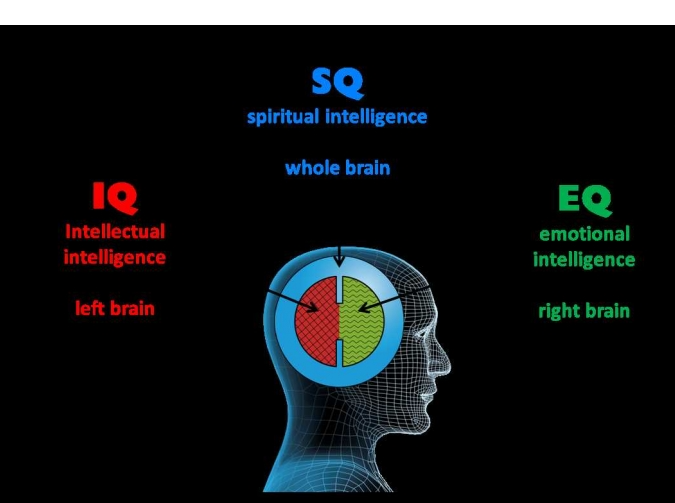Did you know the influence of IQ, EQ and SQ on adolescent development: Parents must know and understand these differences
Blog post description by Administrator
ARTICLE INFORMATION
9/9/20243 min read


Understanding IQ, EQ, and SQ
IQ, or Intelligence Quotient, refers to a measure of a person's intellectual abilities, including analytical, logical and problem-solving abilities. The concept of IQ was first developed by Alfred Binet in the early 20th century to identify the special needs of children in education. Classic IQ tests assess various aspects such as verbal, mathematical, memory and visual-spatial abilities. The results are measured in the form of a score that compares an individual's abilities with the population average.
EQ, or Emotional Quotient, was introduced later as a measurement of a person's capacity to identify, understand and manage their own and other people's emotions. This concept was developed by psychologists such as John Mayer and Peter Salovey, and popularized by Daniel Goleman. EQ tests assess aspects such as empathy, self-control, motivation, social skills, and self-awareness. EQ is considered important because of its ability to influence interpersonal relationships and success in various areas of life.
SQ, or Spiritual Quotient, is the third dimension that measures an individual's level of spirituality and moral values. The concept of SQ was explained by Cindy Wigglesworth and Dana Zohar and Ian Marshall, who saw SQ as the ability to understand the meaning of life and apply ethical values and principles in everyday life scenarios. Measuring tools such as the Spiritual Intelligence Self-Report Inventory (SISRI) are often used to assess aspects such as deep awareness, wisdom, compassion, and moral integrity.
An in-depth understanding of the differences between IQ, EQ, and SQ helps create a comprehensive picture of individual development, especially in adolescents. Accurate measurement through valid and reliable tests is the first step in understanding educational and emotional and spiritual needs at that time. This is very relevant to direct potential and determine appropriate interventions in their development.
The Influence of IQ, EQ, and SQ on Adolescent Development
Intellectual intelligence (IQ), emotional intelligence (EQ), and spiritual intelligence (SQ) are three dimensions that play an important role in adolescent development. Intellectual intelligence (IQ) is closely related to cognitive abilities, such as logic, decision making, and problem solving. Teenagers with high IQs often excel academically, can understand complex concepts, and are able to think critically. However, a high IQ does not always guarantee success in life if it is not balanced with good emotional management and spiritual development.
Emotional intelligence (EQ) centers on an individual's ability to recognize, understand, and manage their own and others' emotions. Teenagers with high EQ tend to have good interpersonal skills, are able to empathize, and can build healthy social relationships. Effective emotional management helps them deal with stress, conflict, and challenging situations more wisely. A lack of EQ can result in difficulties in social relationships and potential emotional instability, which in turn can affect overall mental well-being.
On the other hand, spiritual intelligence (SQ) includes moral dimensions and deep spiritual values. SQ involves understanding the purpose of life, the meaning of existence, and a higher relationship with oneself and human values. Adolescents with well-developed SQ tend to have strong morality, integrity, and deeper feelings of happiness. SQ also helps in giving meaning to life's suffering and challenges, so that you are better able to face difficulties with a sincere and understanding heart.
It is important to understand that these three intelligences are interrelated and complementary. High IQ without being supported by adequate EQ and SQ may result in an imbalance in the social and emotional life of teenagers. Conversely, adolescents with high EQ and SQ but lacking in IQ may face challenges in academic and cognitive areas. Parents and educators need to pay attention to the development of IQ, EQ, and SQ simultaneously to ensure the formation of a balanced and holistically developed individual.
The Role of Parents in Understanding and Developing IQ, EQ, and SQ in Adolescents
Parents play an important role in developing IQ, EQ and SQ in teenagers. Understanding the differences between these three aspects and how to stimulate their development is a crucial first step. Developing IQ or intellectual intelligence can start by encouraging positive study habits. Parents can provide an environment that is conducive to learning, such as providing books that suit their child's interests, participating in additional education programs, or using technology to support learning.
To develop EQ or emotional intelligence, it is important for parents to teach social and emotional skills. This can be done through daily activities such as talking about feelings, teaching empathy by practicing it, and involving children in activities that encourage cooperation and communication. For example, participating in group activities or social organizations can help children build their social skills.
Meanwhile, to stimulate SQ or spiritual intelligence, parents can involve children in activities related to spiritual and moral values. Inviting children to discuss the meaning of life and important values in everyday life can help them develop spiritual intelligence. Activities such as meditation, personal reflection, or engaging in community service can also be effective ways to develop SQ.
Achieving a balance between IQ, EQ, and SQ is very important. Parents need to monitor and evaluate their child's overall development. Using a development journal or regularly talking about the child's progress and challenges in these three aspects can be an effective method. In addition, additional resources such as counseling, reading parenting-related books, and attending seminars or workshops can help parents better understand and support their child's overall development.
Contact US
Bypass Prof. Dr. Ida Bagus Mantra No.99, Negari, Kec. Banjarangkan, Klungkung Regency, Bali 80752
(0366) 5684001/5584000
grhabhaktimedika@gmail.com
Copyright © 2025 Grha Bhakti Medika Hospitals.
WA: 0821-4607-8245 - (Front Office)
